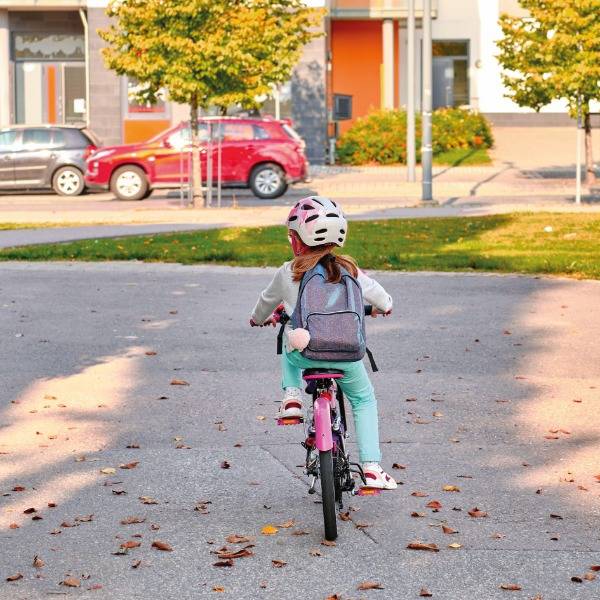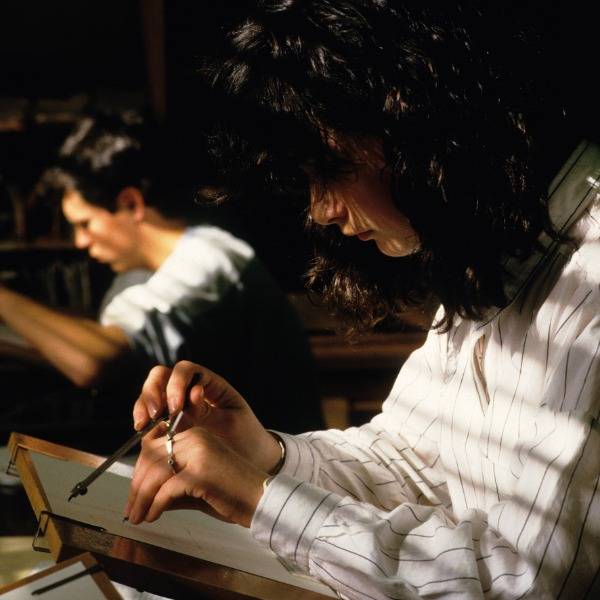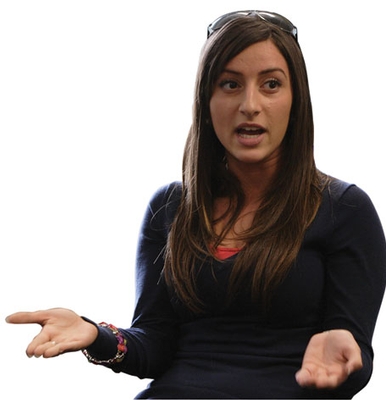
This summer I went to Haverstock School in Camden to speak to a group of young people studying religion at A level or GCSE, to try and discover what role they felt religion played in their lives and how likely it was to affect what they felt about key social and moral issues. I wanted to get a snapshot of how safe our secular society will be in their hands.
I chose Haverstock for several reasons. The first was access; I have known the school for more than 20 years, as a parent (my two sons went there), a governor and, for five years, chair of the governors. Second, the school has a new symbolic importance since three of its former pupils enjoy high political profiles (one now leads the Labour Party). Thirdly, and most importantly, Haverstock is typical of the changes that have come about in state education in the past decades. In the ’70s the pupils were predominantly white working-class with a sprinkling of professional and middle-class families from Primrose Hill, Belsize Park, Hampstead and Islington. But during a few grim years in the late ’70s the middle class deserted the school, and none but the most dyed-in-the-wool Primrose Hill socialists would consider sending their kids there now. This was also when the names Mohamed and Abdul and Ayisha began to appear on the registers, reflecting the changing demographics of the catchment area. Since then conflicts around the world have increased the diversity – 25 per cent of the pupils are now from refugee families or are asylum seekers and the school has kids from 70 ethnic backgrounds speaking 50 mother tongues.
During my tenure as chair the school moved to a new building – opposite Chalk Farm tube – and, under the excellent headteacher John Dowd, has been steadily improving since the dark days of the 1990s. In Ofsted-speak it is judged to be “good with some outstanding features”, no small feat given the dizzying diversity and comparative deprivation of the student body. Dowd is positive about the diversity, and suggests how the presence of refugees actually serves to diversify the socio-economics of the school: “Becoming a refugee obscures your socio-economic background. Many are professional people currently working in low-status jobs and to some extent that confuses the statistics. Refugee families add a huge breadth to the culture of the school.”
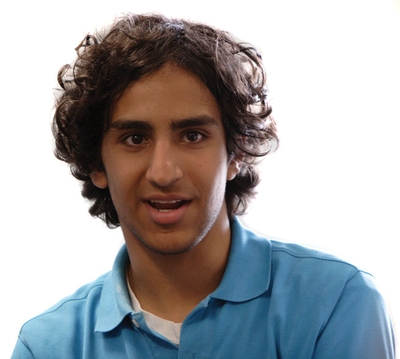 But of course being a refugee has other implications. In addition to the trauma some of the children and their families have suffered, and the fact that political conflict is very close to the surface, there is the ever present issue of religion. For many forced to flee from their homes to an alien land, religion forms part of the vital link to their home country. Some are here because of explicitly religious persecution. Hardly surprising, then, that they cling on to it as part of their home culture and an important constituent of their embattled identity. How do young people manage this gulf between where they are from and where they are at?
But of course being a refugee has other implications. In addition to the trauma some of the children and their families have suffered, and the fact that political conflict is very close to the surface, there is the ever present issue of religion. For many forced to flee from their homes to an alien land, religion forms part of the vital link to their home country. Some are here because of explicitly religious persecution. Hardly surprising, then, that they cling on to it as part of their home culture and an important constituent of their embattled identity. How do young people manage this gulf between where they are from and where they are at?
Following a £21 Million rebuild in 2006, Haverstock is now a smart-looking modernist concrete building, with a bustling reception, appropriate to its rebranding as an enterprise college. You have to show ID to get past the reception, but the security guard on the door is unobtrusive. The corridors are lively, but not out of control. There is a greater degree of mixing, of age, ethnicity and gender, than is usual in other schools (I have been in education for 40 years so I’ve seen a few).
I’m led upstairs by Cath, the religious studies teacher, to her classroom where her A-level group, plus three younger girls who are doing GCSE, are already assembled. I ask them to wear name tags so I can identify them during our discussion, and the names tell their own story: Hawid, Suheli, Muna, Agon, Scott, Wissam, Ashish, Hassan, Tsolman, Addow, Pellumb, Morsal, Frankie, Ziyad, Lily, Zorah.
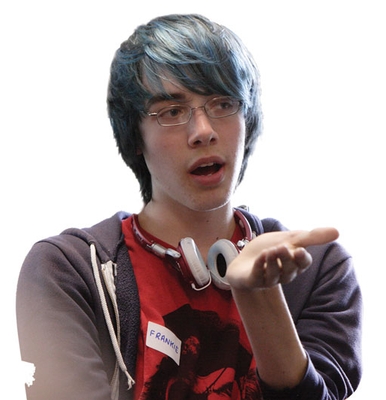 I ask them if they follow any religious belief. The transformed religious complexion of this generation is obvious: three atheists, one (ex-) Buddhist, one Hindu, one Christian and ten Muslims, though after a few minutes it is also evident that the Muslims do not look or think the same. Three of the young women wear headscarves, but Morsal, who is a believer from Afghanistan, does not, nor does Zorah, from a secular Iranian family, who has made a conscious decision to “revert” to Islam. Some were born in this country but most were not. They come from Syria, Afghanistan, Mongolia, Kosovo, Iran, Somalia and Iraq. Two describe themselves as Middle Eastern and one as Persian. Three are native Brits.
I ask them if they follow any religious belief. The transformed religious complexion of this generation is obvious: three atheists, one (ex-) Buddhist, one Hindu, one Christian and ten Muslims, though after a few minutes it is also evident that the Muslims do not look or think the same. Three of the young women wear headscarves, but Morsal, who is a believer from Afghanistan, does not, nor does Zorah, from a secular Iranian family, who has made a conscious decision to “revert” to Islam. Some were born in this country but most were not. They come from Syria, Afghanistan, Mongolia, Kosovo, Iran, Somalia and Iraq. Two describe themselves as Middle Eastern and one as Persian. Three are native Brits.
We start with the subject of faith schools. As predominantly religious youth in a mixed secular school, what do they think about the idea of having separate schools for different faith groups? Ziyad, a Muslim, is emphatic: “I think faith schools promote racism.” Pellumb, brought up a Muslim but now “not very religious”, agrees: “If you have faith schools you are just segregating the nation.” Three accept that there might be a place for faith schools, but are positive about the experience they have had in this comprehensive school. Frankie, an atheist with blue hair, asserts what seems like a common attitude to difference: “If you go to a faith school you just learn about your own culture, not about diversity.” Lily, from a British middle-class family, an atheist with an interest in religion, is diplomatic: “Faith schools have their place but I have learnt so much from being in a diverse group like this.” Morsal, who describes herself as a devout Muslim, wants nothing to do with them: “If I went to a Muslim school I would only know about Islam. I want to meet different people and experience diversity.”
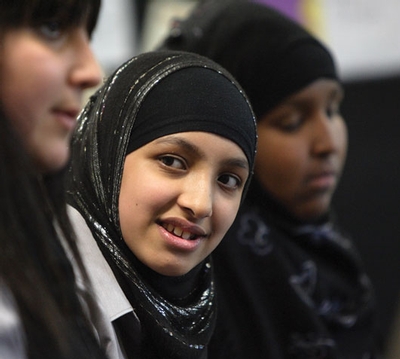 Where, I wondered, did they think people got their morality from? Did having religion make you a more moral person? They started with a general agreement about the importance of the family – parents do indeed, in their collective view, pass on their morality to their children. But there are significant differences among the Muslims about the role of religion. “Religion is really important to me because it makes me who I am,” says Morsal. You can’t get much more explicit than that. But Agon wants to make a distinction between religion and culture: “I don’t practise the Islamic faith to the full extent. I don’t pray five times a day and I do other stuff that is seen to be haram – I drink at parties and I’ve got a girlfriend and all that. That is my religion but my culture is stronger. I have grown up Kosovan and being Kosovan has always been the main thing that I have been taught in my family.”
Where, I wondered, did they think people got their morality from? Did having religion make you a more moral person? They started with a general agreement about the importance of the family – parents do indeed, in their collective view, pass on their morality to their children. But there are significant differences among the Muslims about the role of religion. “Religion is really important to me because it makes me who I am,” says Morsal. You can’t get much more explicit than that. But Agon wants to make a distinction between religion and culture: “I don’t practise the Islamic faith to the full extent. I don’t pray five times a day and I do other stuff that is seen to be haram – I drink at parties and I’ve got a girlfriend and all that. That is my religion but my culture is stronger. I have grown up Kosovan and being Kosovan has always been the main thing that I have been taught in my family.”
Suheli, the strictest practitioner, claims not to feel restricted by religion: “I’ve been brought up really religious. My parents are Islamic to the fullest extent. They pray five times a day, they read the Qur’an and I’ve been taught to do that. But I have loads of friends who practise different religions and they have been brought up to be different but I don’t mind whatever they do. The way I’ve been brought up is the way I behave. I follow my religion. I do what my parents tell me but it’s not really difficult because I’ve learnt to cope with it.”
All the students are conscious of a conflict between what their family expects and the society outside, and even more conscious of the differences between life in London and in their countries of origin. Morsal does feel she is stuck between two worlds: “Here on the Western side I really love the fact of freedom and choice, whereas in Afghanistan if I’m going to choose someone to marry it has to be someone from my background, sometimes it is compulsory. That limits me and my choice, my rights as a human, so I am battling against two worlds, culture and religion.” She is not alone in experiencing this conflict, though it seems only the Muslims in the group experience this as a culture clash.
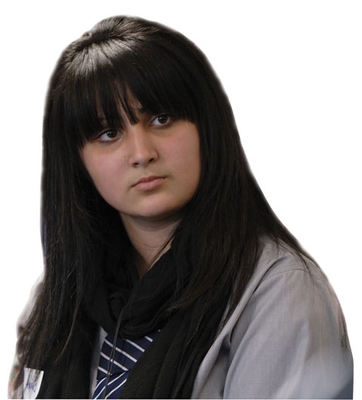 They seem to be friends. Lily thinks you are not a more moral person because you are religious. Ziyad agrees. “I’d like to believe that religion says you should be better morally but really it doesn’t work like that. I’m a Muslim but I’m less moral than Lily who is an atheist. I do much more bad stuff than she does. And I’m religious and she’s not.” Morsal sees religion as a guide but not fundamental to moral behaviour. “It’s your life experiences that teach you as a person and will make or break your morality. As a human being you know the morality of right and wrong. If you see someone in need you help them. Its not like religion has caused that.” And Hawid, equally devout, says “I’ve learnt my values through society rather than religion. I’ve learnt though education and my friends and that. Religion does play a role in learning morality and the norms of society but I think education plays a bigger role.”
They seem to be friends. Lily thinks you are not a more moral person because you are religious. Ziyad agrees. “I’d like to believe that religion says you should be better morally but really it doesn’t work like that. I’m a Muslim but I’m less moral than Lily who is an atheist. I do much more bad stuff than she does. And I’m religious and she’s not.” Morsal sees religion as a guide but not fundamental to moral behaviour. “It’s your life experiences that teach you as a person and will make or break your morality. As a human being you know the morality of right and wrong. If you see someone in need you help them. Its not like religion has caused that.” And Hawid, equally devout, says “I’ve learnt my values through society rather than religion. I’ve learnt though education and my friends and that. Religion does play a role in learning morality and the norms of society but I think education plays a bigger role.”
I want to get concrete. What about suicide or assisted dying? (I wanted to see if there was a correlation between religion and hostility to assisted suicide as we would expect).
With regard to the sanctity of life all except one thought that an individual has the right to take his or her own life, “as long as you do it without harming other people”. This seemed to be the generally held view. Many of them struggled admirably with their mixed feelings about this, remarkably willing to think honestly in public about this tricky area, teasing out whether it was possible to kill yourself without causing harm to others.
But what about assisting someone to take their life? There was more thought about this but, on reflection again only two, both Muslim, rejected the idea. Hawid based her opposition on a literal reading of the Qur’an: “I believe in the hereafter and I think if God decides to put someone through pain he does it for a reason and that person will be rewarded in the hereafter. My opinion is that helping someone to die is not right. Everyone should live their life and wait until God decides to take life from them. That’s what I believe.” And Morsal agrees but works her way to her position: “The idea of assisted suicide or euthanasia I find very hard to grasp because, being brought up with these moral codes and taught about how life is valuable, the sanctity of life, you can never put a price or worth on someone’s life. Life is extremely valuable in my opinion, I just don’t see myself being able to take life away from a person. What gives us the right to take life away? It’s playing God.” Wissam was prepared to distinguish between his faith and his morality: “I am a Muslim. I believe that only God gives life and takes life, but if I was in that situation where someone I loved was in a lot of pain I would put religion aside. I wouldn’t be able to handle seeing that pain so I would help end the life immediately.”
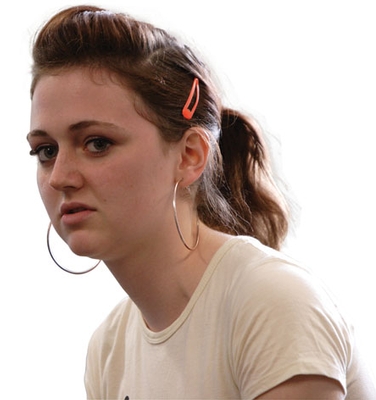 When it came to homosexuality it was no surprise that those without religion were completely accepting of homosexuality and simply could not understand how a society could ban what they see as normal behaviour, still less imprison or execute homosexuals. Without exception all the students, religious or not, believed that in our society people should be free to express their sexuality in their own way (which is pretty remarkable considering that the devout Muslims in the group also accepted that the Qur’an condemns homosexuality).
When it came to homosexuality it was no surprise that those without religion were completely accepting of homosexuality and simply could not understand how a society could ban what they see as normal behaviour, still less imprison or execute homosexuals. Without exception all the students, religious or not, believed that in our society people should be free to express their sexuality in their own way (which is pretty remarkable considering that the devout Muslims in the group also accepted that the Qur’an condemns homosexuality).
There was some confusion over the law as it applies to women. They were all but unanimous that women in London should be free to express their religious belief in the dress they wear, even if it means you cannot see their faces, and they totally rejected moves by France to ban face covering. The exception was Ziyad, a Muslim, who supported the right of any country to ban the full face veil if the majority wanted to. He had been shocked by the treatment of his mother on a visit to Saudi Arabia: “She couldn’t leave the house without being accompanied by a man. So she had to ask me, her 13-year-old son, to go out with her. That is ridiculous. It’s not so much the religion that treats women poorly, it’s the culture that is imposed by men.” On the other hand most agreed that covering the face is not mandatory and that it is a cultural practice and not enjoined by the teaching of the Prophet.
Even the staunchest believers admitted that women in Islam get a raw deal, but there was evident tension in the attitude of the more devout, who appeared to accept the inevitability of the second-class status they felt intellectually to be wrong. Hawid found herself saying, “I don’t know how to put it but the way society is women are not meant to do the higher status jobs”, and Zorah, such a confident, modern-looking and-sounding young woman who had voluntarily chosen to embrace Islam, chipped in with “In the Koran it does say that men should guide and protect the women,” though she qualified this by suggesting that the oppression of women in places like Afghanistan had more to do with cultural tradition than with Islam. For the Muslim girls, when their opinions seemed to conflict with Islamic teaching they appeared ready to give way, accepting, for example, the injunction not to touch the Qur’an when they are menstruating. Some of them recognise that such a prohibition can be seen as demeaning but they do not question it in practice.
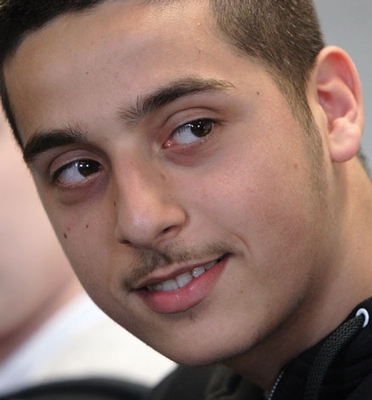 It might appear from the way the debate developed that there is a significant divide between Muslims and others. And there is. But more striking was the generosity and the acceptance of difference. As far as I could see there is no threat at all to “traditional values”, though there is a challenge to the ways we learnt to conduct ourselves before we were such a diverse society. Throughout the debate there is not a whiff of intolerance or rejection of an idea out of hand. It is obvious that the students in this group are used to being listened to. They are fluent speakers and careful listeners. This is in part a testament to the success of Haverstock’s ethos. “It is absolutely fundamental to me that everyone has equal value in this school. The student who walks in here at 11 years of age has as much value as I have,” says John Dowd. “Our job is to listen and to encourage young people to be open and honest.”
It might appear from the way the debate developed that there is a significant divide between Muslims and others. And there is. But more striking was the generosity and the acceptance of difference. As far as I could see there is no threat at all to “traditional values”, though there is a challenge to the ways we learnt to conduct ourselves before we were such a diverse society. Throughout the debate there is not a whiff of intolerance or rejection of an idea out of hand. It is obvious that the students in this group are used to being listened to. They are fluent speakers and careful listeners. This is in part a testament to the success of Haverstock’s ethos. “It is absolutely fundamental to me that everyone has equal value in this school. The student who walks in here at 11 years of age has as much value as I have,” says John Dowd. “Our job is to listen and to encourage young people to be open and honest.”
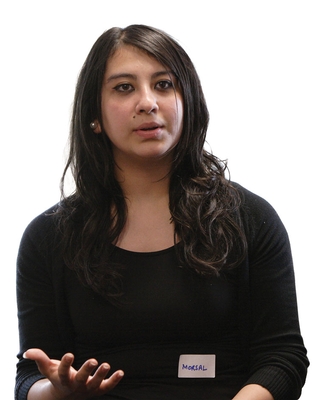 Lily put it best: “I think if you’re brought up from a very young age to believe in something it’s hard to see the faults in it. That’s dangerous. People should be able to question their religion otherwise things will never change.”
Lily put it best: “I think if you’re brought up from a very young age to believe in something it’s hard to see the faults in it. That’s dangerous. People should be able to question their religion otherwise things will never change.”
At the end, as the bell rang and the pupils filed out to their next class and their open future, Morsal sought me out. Morsal – the devout Muslim, the young woman, the Afghan, the Londoner – thanked me. She said it had been fun, because it made her think. Someone like Morsal – devout and tolerant, committed to Muhammad and to diversity, for whom thinking is fun – is a challenge to all our preconceptions.
Original photography by Jack Barnes
Also in this issue Francis Beckett argues that we need to have humanist schools to counter the rise of faith schools. Read it and vote in our poll (currently readers are supporting the proposal).
